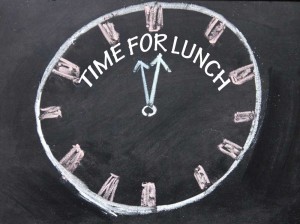Employers need to be diligent about making sure that employees are relieved of all duties during unpaid meal periods. In DeVito v. Longwood Security Services, CA No. 2013-01724 (December 23, 2016), a case of first impression, the Massachusetts Superior Court set forth a new standard for determining whether an employee’s meal period should be paid or unpaid. According to the court’s decision, employees must be “completely relieved from duty” for a lunch break not to count as paid work time.
The Plaintiffs in this case were a group of private security guards working at sites throughout Boston. The guards were provided meal breaks but were required to remain in uniform, onsite, and respond to radio calls received during their breaks. The guards argued that because they were not completely relieved of their work related duties during meal breaks, the breaks should be paid. The court agreed. The guards claimed Wage Act violations.
The court based its decision on the definition of “working time” under the state’s wage-hour regulations, which it determined was unambiguous. It rejected the Defendant’s claim that the test for determining whether an unpaid meal break is compensable is the more employer friendly test under the Fair Labor Standards Act that looks at whether the employee is “primarily engaged in work-related duties during meal periods.”
This does not change M.G.L. c. 149, § 100, under which employees who work a period of more than six hours in a day are entitled to a 30-minute meal break. An employee can voluntarily waive the meal break and work through it, but only if paid for the 30 minutes.







